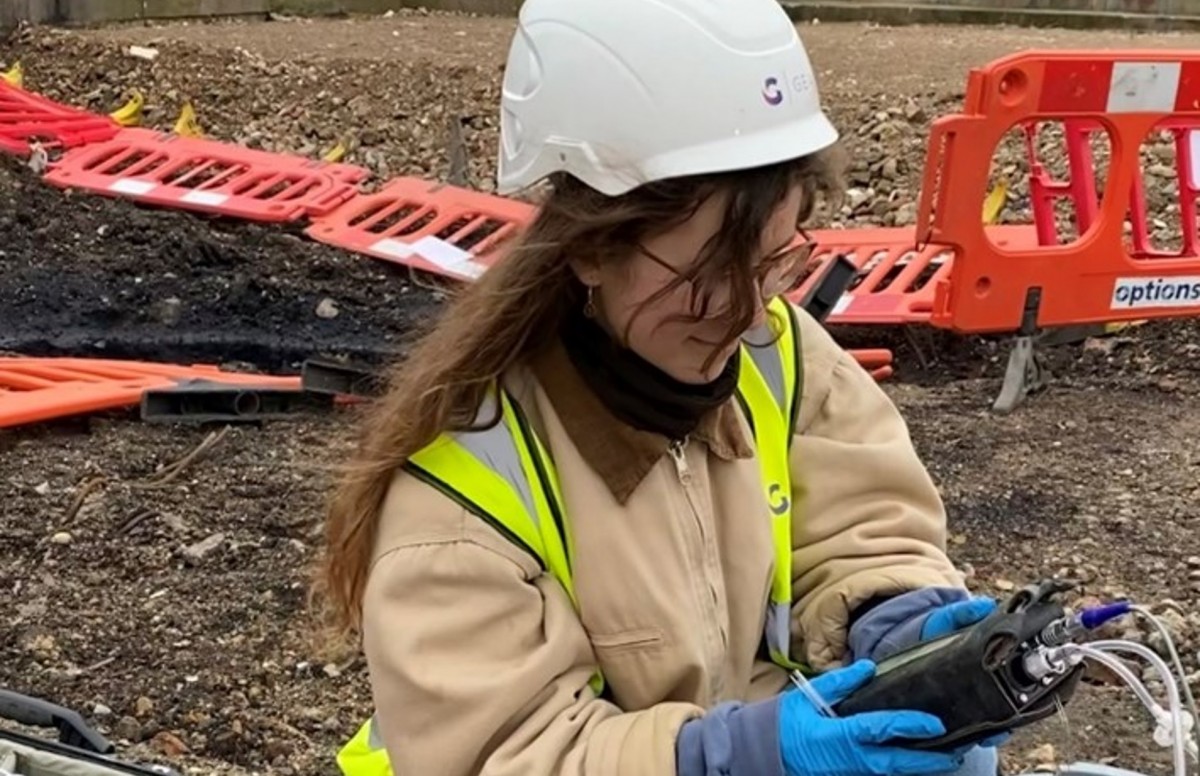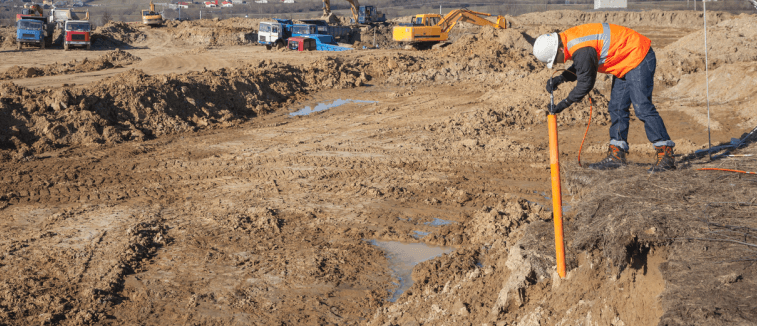The 3-Minute Rule for Geotheta
The 3-Minute Rule for Geotheta
Blog Article
An Unbiased View of Geotheta
Table of ContentsGet This Report on GeothetaRumored Buzz on GeothetaThe Ultimate Guide To GeothetaGeotheta Can Be Fun For Everyone
They work together with civil designers, architectural engineers, designers, and various other specialists to incorporate geotechnical considerations right into the general task design and building procedure. This needs effective teamwork, sychronisation, and communication to make sure that the geotechnical elements align with the job purposes and fulfill governing needs.Mining & Materials Engineering: Principles of boring, penetration rates, and variables impacting the selection of boring approach. Qualities of nitroglycerins, firing systems and blast patterns. Blowing up strategies in surface area and below ground functions. Unique blasting strategies at excavation boundaries. Vibration and sound control. Mechanical and constant approaches to fragmentation, consisting of longwall shearing and fullface boring.
Integrated analysis of fragmentation and comminution operations. Offered by: Mining & Materials Design.
Some Known Factual Statements About Geotheta
Bachelor's degree programs in civil, geotechnical, geological, and environmental design typically last four years and consist of basic education and learning courses in English, social scientific research, and the humanities, in addition to training courses in advanced mathematics, architectural geology, and liquid mineralogy. (https://geotheta.godaddysites.com/f/why-geotechnical-engineers-are-your-projects-best-friends)
Geotechnical engineering includes the analysis of the soil and rock conditions at a certain website, and their implications for the advancement of that website. As most structures rely upon the ground for support, it is without surprise that an in-depth understanding of the ground conditions, and the suitability of foundation systems, are important to the long-lasting security and efficiency of the building or structure.
Being experts in the examination of geological developments and ground behaviour, geotechnical engineers execute clinical examinations and testing to comprehend the effect these geological developments might carry the layout and building of building, civil and facilities tasks. This proficiency is important for the style and building and construction of buildings, roads, tunnels, dams, bridges, and supply of water and sewage systems.
The geotechnical team at Douglas Partners routinely talk to designers, layout designers, designers, and home builders to make suggestions on layout and growth propositions to ensure that the built frameworks are accordingly created for the ground conditions. For example, the design of footing systems requires to think about the weight of the structure, the capability of the ground to support that weight along with motion resistances and effective building and construction.
Geotheta Fundamentals Explained
This task is greatly streamlined by the use our Douglas Map geospatial system which makes this information readily obtainable in an easy to make use of internet browser interface. A geotechnical designer will certainly direct the drilling of boreholes and examination pits to gather soil and various other samples, and likewise examine surface area functions and ground exposures to develop a geotechnical version of the subsurface conditions.
Relying on the job kind and ground conditions came across, research laboratory screening might among various other points examine toughness, compressibility, reactivity and/or leaks in the structure of dirt and rock examples. Hereafter information is collected and collected, the results are used for a geotechnical version of the website, which is normally presented as areas throughout the site.

A geotechnical investigation by nature can just evaluate the ground conditions at the areas pierced or dug deep into. All-natural variations in dirt and rock problems can take place across a site and in between examination locations. It is as a result excellent method that the geotechnical engineer be maintained throughout construction of the job to supply on-site confirmation that the ground conditions experienced follow the assumptions and recommendations given in the geotechnical examination record.
Examine This Report about Geotheta
Geotechnical engineers utilize their in-depth knowledge of soil and rock to assess danger and fix troubles on diverse infrastructure projectsGeotechnical engineering is a specialist branch of civil design which checks out the behavior of earth products and the application of soil and rock auto mechanics. Geo Tech Engineer. As a geotechnical engineer, you will certainly evaluate the physical, mechanical and chemical residential or commercial properties of dirt and rock in order to make foundations, retaining structures and earthworks
Geotechnical design is carefully connected to and overlaps with, both engineering geology and ground engineering - https://geotheta.godaddysites.com/f/why-geotechnical-engineers-are-your-projects-best-friends. It's feasible to specialise in geotechnics or help a geotechnical company but be referred to as an engineering rock hound or a ground designer. As a geotechnical designer, you'll need to: build and keep partnerships with customers and other experts included in the site, throughout each projectmaintain safety criteria on site bear in mind price ramifications when you make recommendationsstudy geological maps and aerial photos from a variety of sources basics and from different time periodsexamine building intends to see just how practical they are based on your understanding of the siteinvestigate risks or geological risks for the sitesearch for eco sensitive attributes, such as land fill begin to establish valid and interpretive ground modelsplan field investigationsdrill and evaluate samples of bedrock, dirt, groundwater and added materials manage other specialists on sitesolve technical concerns as they arise, such as unanticipated structures at drill sitesmonitor problems throughout and after building to ensure frameworks are steady in the short and long termadding data accumulated on site to your first researchcreating geotechnical computations, drawings, and two or three-dimensional computer system models analyzing the datamaking recommendations regarding the suggested usage of the site

Report this page